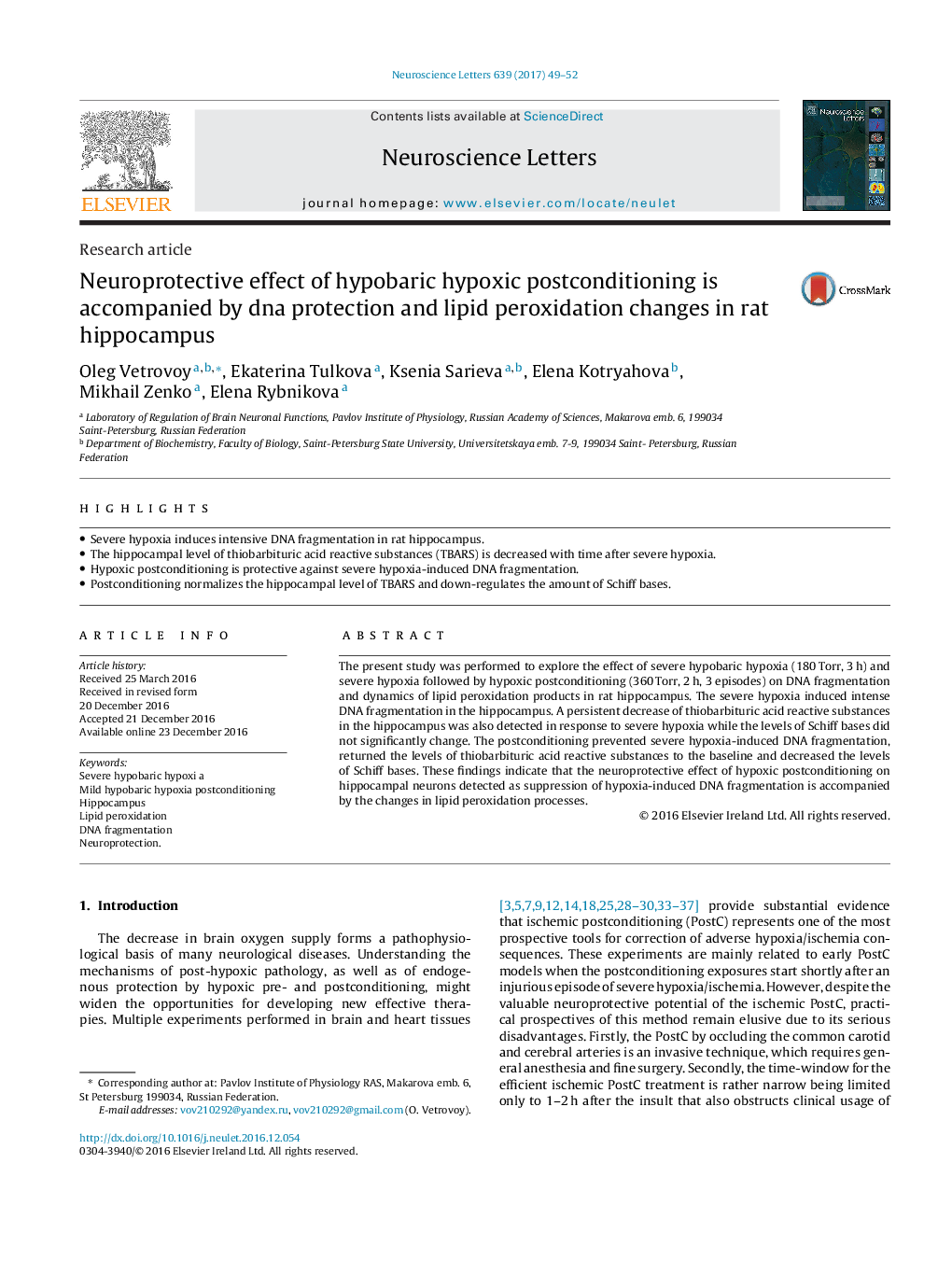| Article ID | Journal | Published Year | Pages | File Type |
|---|---|---|---|---|
| 5738559 | Neuroscience Letters | 2017 | 4 Pages |
â¢Severe hypoxia induces intensive DNA fragmentation in rat hippocampus.â¢The hippocampal level of thiobarbituric acid reactive substances (TBARS) is decreased with time after severe hypoxia.â¢Hypoxic postconditioning is protective against severe hypoxia-induced DNA fragmentation.â¢Postconditioning normalizes the hippocampal level of TBARS and down-regulates the amount of Schiff bases.
The present study was performed to explore the effect of severe hypobaric hypoxia (180Â Torr, 3Â h) and severe hypoxia followed by hypoxic postconditioning (360Â Torr, 2Â h, 3 episodes) on DNA fragmentation and dynamics of lipid peroxidation products in rat hippocampus. The severe hypoxia induced intense DNA fragmentation in the hippocampus. A persistent decrease of thiobarbituric acid reactive substances in the hippocampus was also detected in response to severe hypoxia while the levels of Schiff bases did not significantly change. The postconditioning prevented severe hypoxia-induced DNA fragmentation, returned the levels of thiobarbituric acid reactive substances to the baseline and decreased the levels of Schiff bases. These findings indicate that the neuroprotective effect of hypoxic postconditioning on hippocampal neurons detected as suppression of hypoxia-induced DNA fragmentation is accompanied by the changes in lipid peroxidation processes.
